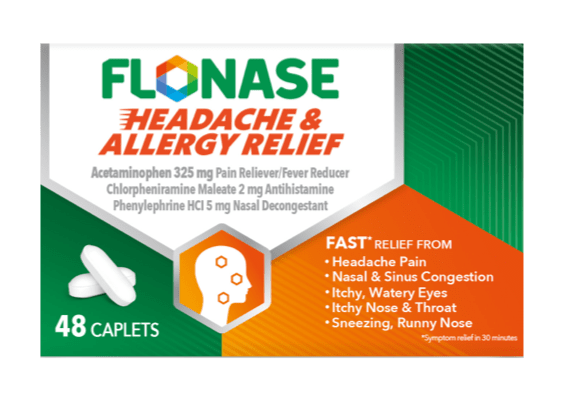Allergic reaction to the product
- Sudden swelling of the face or tongue
- A rash
- Wheezing or feeling faint
If your child experiences any of these symptoms, stop using Children’s FLONASE SENSIMIST and see your child’s pediatrician right away.
Nose injury
- Severe or frequent nosebleeds
- Constant whistling sound that does not go away
Apply pressure to your child’s nose. Stop using Children’s FLONASE SENSIMIST and see your child’s pediatrician right away.
This could be a sign of damage to your child’s nose. Stop using Children’s FLONASE SENSIMIST and see your child’s pediatrician right away.
Eye conditions such as cataracts or glaucoma
- Cloudy vision
- Reduced vision
Schedule a yearly eye exam for your child to check for these conditions. Read the Drug Facts on the back of the Children’s FLONASE SENSIMIST package for more details.
Growth effects
- Slower growth rate in some children while using product
Talk to your child’s pediatrician if you are concerned or if your child is between 2 and 11 years of age and needs to use Children’s FLONASE SENSIMIST for longer than 2 months a year.
Other side effects
- Headaches or sneezing
- Minor nosebleeds
- Dry or irritated nose or throat
Talk to your child’s pediatrician or pharmacist if you are concerned.
DOSING
Children 2 to 11 Years of Age
- An adult should supervise use.
- Use 1 spray in each nostril once daily.
- The growth rate of some children may be slower while using this product. Children should use for the shortest amount of time necessary to achieve symptom relief.
- Talk to your child’s pediatrician if your child needs to use the spray for longer than 2 months a year.
Adults and Children 12 Years of Age and Older
- Week 1—use 2 sprays in each nostril once daily.
- Week 2 through 6 months—use 1 or 2 sprays in each nostril once daily, as needed to treat your child’s symptoms.
- After 6 months of daily use—ask your child’s pediatrician if they can keep using.
WARNINGS
Children’s FLONASE SENSIMIST should only be sprayed in the nose. Don’t spray it in the eyes or mouth.
You should tell your child’s pediatrician about all of the medications your child is currently taking, including Children’s FLONASE SENSIMIST.
Children’s FLONASE SENSIMIST can be used with most non-prescription and prescription medicines. However, there are a few medicines to look out for because they may cause the level of Children’s FLONASE SENSIMIST in your child’s body to become too high. Just to be safe, check this table to see what you should do if your child is taking any of these medicines.
Medicines for HIV infection (such as ritonavir)
Talk to your child’s pediatrician or pharmacist before using Children’s FLONASE SENSIMIST.
Medicines with glucocorticoids including some medicines for skin rash (such as eczema), asthma, inflammation, allergic reactions, or eye conditions
Talk to your child’s pediatrician or pharmacist before using Children’s FLONASE SENSIMIST.
Ketoconazole pills for fungal infection
Talk to your child’s pediatrician or pharmacist before using Children’s FLONASE SENSIMIST.
The following people should not use Children’s FLONASE SENSIMIST or should check with a healthcare professional first before using.
Is younger than 2 years of age
Do not use Children’s FLONASE SENSIMIST.
Has or had glaucoma or cataracts
Talk to your child’s pediatrician before using Children’s
FLONASE SENSIMIST.
Has ever had an allergic reaction to Children’s FLONASE SENSIMIST or any of its ingredients
Do not use Children’s FLONASE SENSIMIST.
Is taking medicine for HIV infection (such as ritonavir)
Talk to your child’s pediatrician or pharmacist before using Children’s FLONASE SENSIMIST.
Is taking ketoconazole pills (medicine for fungal infection)
Talk to your child’s pediatrician or pharmacist before using Children’s FLONASE SENSIMIST.
Is using a steroid medicine for asthma, allergies, skin rash, allergic reactions, inflammation, or eye conditions
Talk to your child’s pediatrician or pharmacist before using Children’s FLONASE SENSIMIST.
ALL ABOUT ALLERGIES
From living with allergies to knowing how to treat them, FLONASE has the information you need to lead a life not limited by allergies. See all articles >





